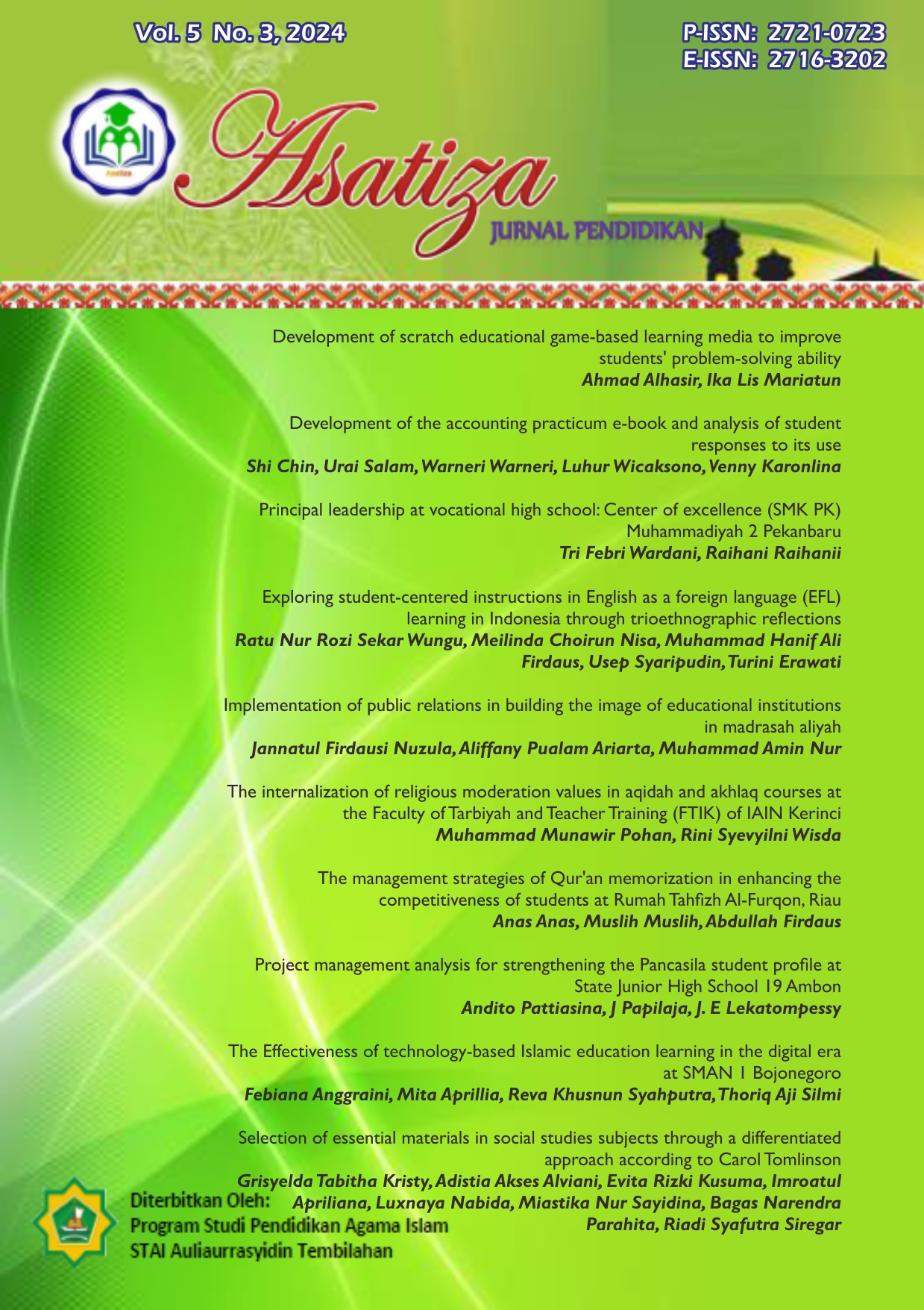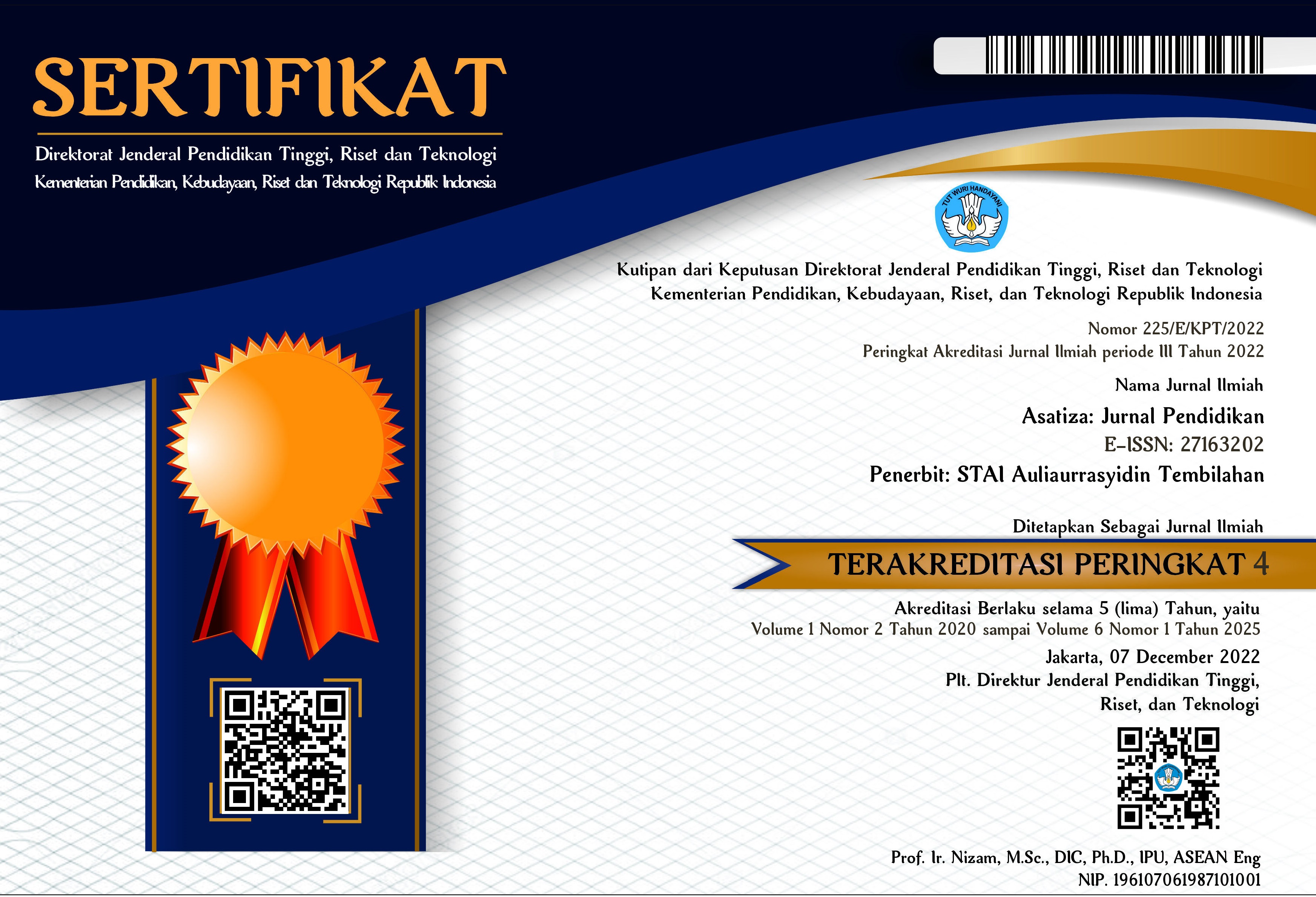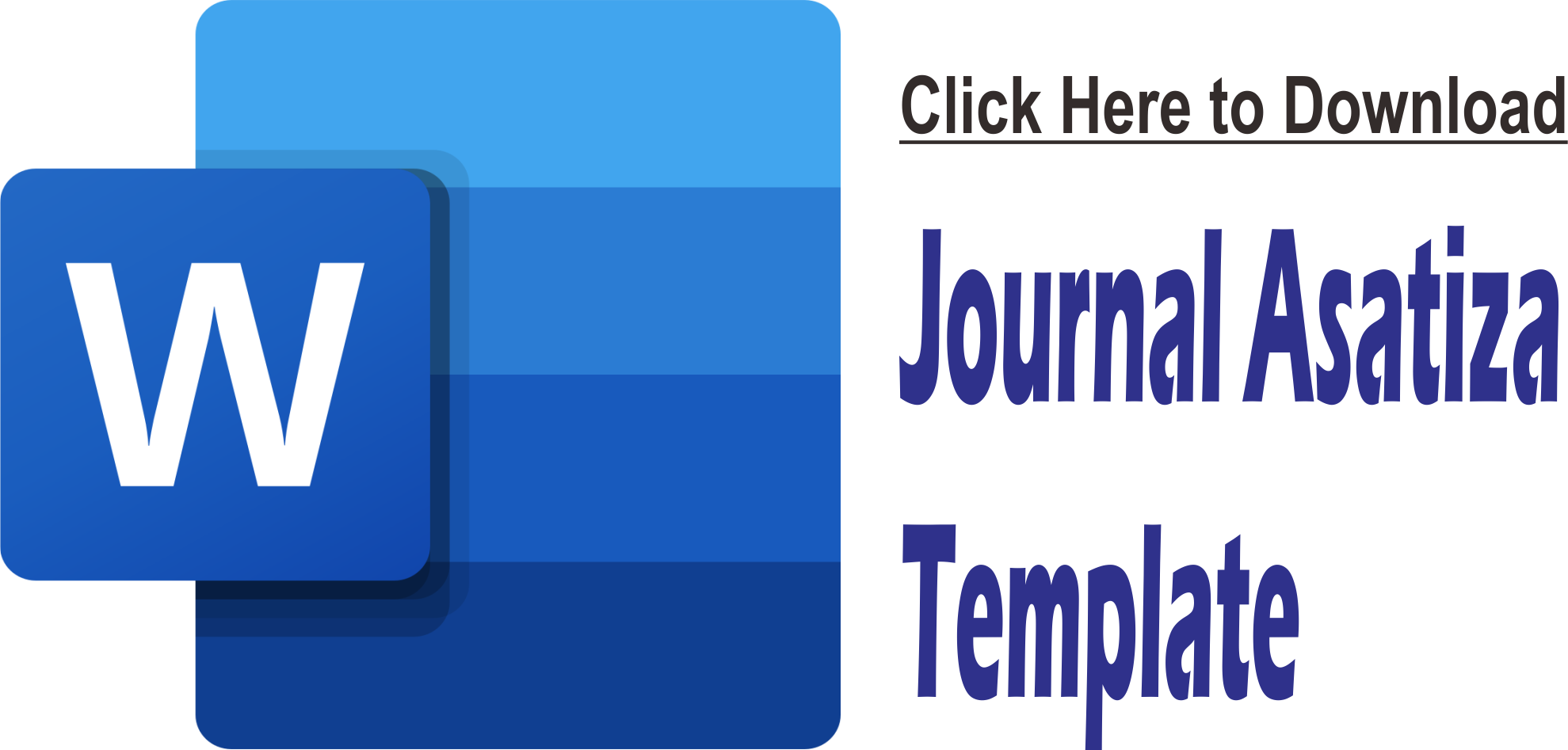Principal leadership at vocational high school: Center of excellence (SMK PK) Muhammadiyah 2 Pekanbaru
DOI:
https://doi.org/10.46963/asatiza.v5i3.1882Keywords:
School Leadership, Vocational High Schools, SMK PK, School-Industry RelationsAbstract
The "Center of Excellence" (SMK PK) is a program launched by the Ministry of Education and Culture to enhance the quality and performance of vocational schools through partnerships with business and industry. This study explores the leadership of the principal at SMK PK Muhammadiyah 2 Pekanbaru within the context of the program. Using a qualitative approach, data were gathered through interviews, documentation, and observation from the principal, head of administration, and vice principal of curriculum. The findings reveal six key leadership indicators: creating an effective school, professional development of staff, improving student achievement, fostering entrepreneurship, driving innovation, and establishing collaborations. Factors influencing leadership were categorized into supporting (e.g., communication, participatory leadership) and inhibiting (e.g., stakeholder disagreement, teacher reluctance).
Downloads
References
Herlambang, S. S. T., & Cahyono, D. (2018). Dampak motivasi, disiplin kerja, dan kepemimpinan kepala sekolah terhadap kinerja guru. Jurnal Sains Manajemen Dan Bisnis Indonesia, 8(2), 131-147. https://doi.org/10.32528/jsmbi.v8i2.1785
Indra, M., & Novika, F. (2022). Pendampingan penyusunan rencana strategis, implementasi visi misi dan evaluasi kegiatan yang efektif efisien mencapai SMK pusat keunggulan (SMK PK). Journal of Egagement, Community Services, Empowerment and Development. 2(1), 149-155. https://doi.org/10.53067/ijecsed.v2i1.53
Istanto, I., Yanto, F. H., Pramono, S. E., Rozik, M. W., & Lubis, E. S. D. D. (2019). Kepemimpinan kepala sekolah dalam menyiapkan lulusan yang berkompeten di dunia kerja di era revolusi industri 4.0 (Studi di SMK Negeri 1 Trucuk Klaten). Prosiding Seminar Nasional Pascasarjana Unnes. 1087-1094. https://proceeding.unnes.ac.id/snpasca/article/view/420
Ja’far, J. (2019). Inovasi kepemimpinan kepala madrasah kreatif dalam meningkatkan mutu pendidikan di sekolah. Evaluasi: Jurnal Manajemen Pendidikan Islam, 3(1), 74-103. https://doi.org/10.32478/evaluasi.v3i1.215
Merriem, S.B. (1998). Qualitative Research and Case Study Applications in Education. San Francisco: Jossey-Bass, Inc.
Miles, M.B. and A.M. Huberman, Qualitative Data Analysis. 1994, Thousands Oaks: SAGE Publications.
Moecrt (2021). Decree Number 165/M/2021 Concerning the Center of Excellence Vocational High School Program, p.6
Nadiya, A. N. A., & Andari, S. (2022). Peran kepala sekolah dalam meningkatkan kompetensi peserta didik melalui pengelolaan program SMK Pusat Keunggulan (PK) di SMK Negeri 1 Kota Probolinggo. Inspirasi Manajemen Pendidikan. 10(4), pp.788-793. https://ejournal.unesa.ac.id/index.php/inspirasi-manajemen-pendidikan/article/view/52543
Nasrun, N. (2016). Pengaruh kepemimpinan kepala sekolah terhadap motivasi kerja dan kinerja guru. Ilmu Pendidikan: Jurnal Kajian Teori Dan Praktik Kependidikan. 22(2), 201-207. http://dx.doi.org/10.17977/um027v1i22016p063
Nurbaya, S., & Ali, M. (2015) Gaya kepemimpinan kepala sekolah dalam meningkatkan kinerja guru pada SD Negeri Lambaro Angan. Jurnal Administrasi Pendidikan Pascasarjana Universitas Syiah Kuala, 3(2), 116-127. https://jurnal.usk.ac.id/JAP/article/view/2566
Raihani, 2010. Kepemimpinan. Sekolah Transformatif. LKiS: Yogyakarta: LKiS.
Riski, H., Rusdinal, & Gistituwati, N. (2021) Kepemimpinan kepala sekolah di sekolah menengah pertama. Edukatif Jurnal Ilmu Pendidikan. 3(6), 3531-3537. https://doi.org/10.31004/edukatif.v3i6.944
Rojaki, M., Fitria, H., Martha, A. (2021). Manajemen kerja sama sekolah menengah kejuruan dengan dunia usaha dan dunia industri. Jurnal Pendidikan Tambusai. 5(3), 6333-6349. https://doi.org/10.31004/jptam.v5i3.1949
Sari, J. D. R., Giatman, M., & Ernawati, E. (2021). Peran kepemimpinan kepala sekolah dalam meningkatkan mutu pendidikan. Jurnal Penelitian Dan Pengembangan Pendidikan, 5(3), 329–333. https://doi.org/10.23887/jppp.v5i3.34846
Sholihatinnisa, I., Nurcahyono, N. A., & Fitria, R. (2021). Realisasi bisnis digital siswa guna mewujudkan profil pelajar pancasila sebagai SMK Pusat Keunggulan. Jurnal Ilmiah Kampus Mengajar, 1(2), 86-93. https://doi.org/10.56972/jikm.v1i2.8
Suyitno. (2021). Analisis kepemimpinan kepala sekolah, penerapan disiplin dan pengawasan terhadap etos kerja. Edukatif: Jurnal Ilmu Pendidikan, 3(3), 728-737. https://doi.org/10.31004/edukatif.v3i3.438
Wibowo, S. H., Toyib, R., Darnita, Y., Witriyono, H., Imanullah, M., & Darmi, Y. (2022). Diklat riset terapan bagi guru sekolah menengah kejuruan pusat keunggulan 2022. Journal Of Empowerment. 3(1), 31-45. https://doi.org/10.35194/je.v3i1.2035
Yulianto, Y., & Sutrisno, B. (2014). Pengelolaan Kerjasama Sekolah dengan Dunia Usaha/Dunia Industri (Studi Situs SMK Negeri 2 Kendal). Jurnal Pendidikan Ilmu Sosial. 24(1), 19-34. https://doi.org/10.2317/jpis.v24i1.796
Downloads
Published
Issue
Section
License
Copyright (c) 2024 Tri Febri Wardani, Raihani Raihani

This work is licensed under a Creative Commons Attribution-ShareAlike 4.0 International License.
Authors who publish with this journal agree to the following terms:
1. Copyright on any article is retained by the author(s).
2. The author grants the journal, right of first publication with the work simultaneously licensed under a Creative Commons Attribution shareAlike 4.0 International License that allows others to share the work with an acknowledgment of the work’s authorship and initial publication in this journal.
3. Authors are able to enter into separate, additional contractual arrangements for the non-exclusive distribution of the journal’s published version of the work (e.g., post it to an institutional repository or publish it in a book), with an acknowledgment of its initial publication in this journal.
4. Authors are permitted and encouraged to post their work online (e.g., in institutional repositories or on their website) prior to and during the submission process, as it can lead to productive exchanges, as well as earlier and greater citation of published work.
5. The article and any associated published material is distributed under the Creative Commons Attribution-ShareAlike 4.0 International License











2.png)



